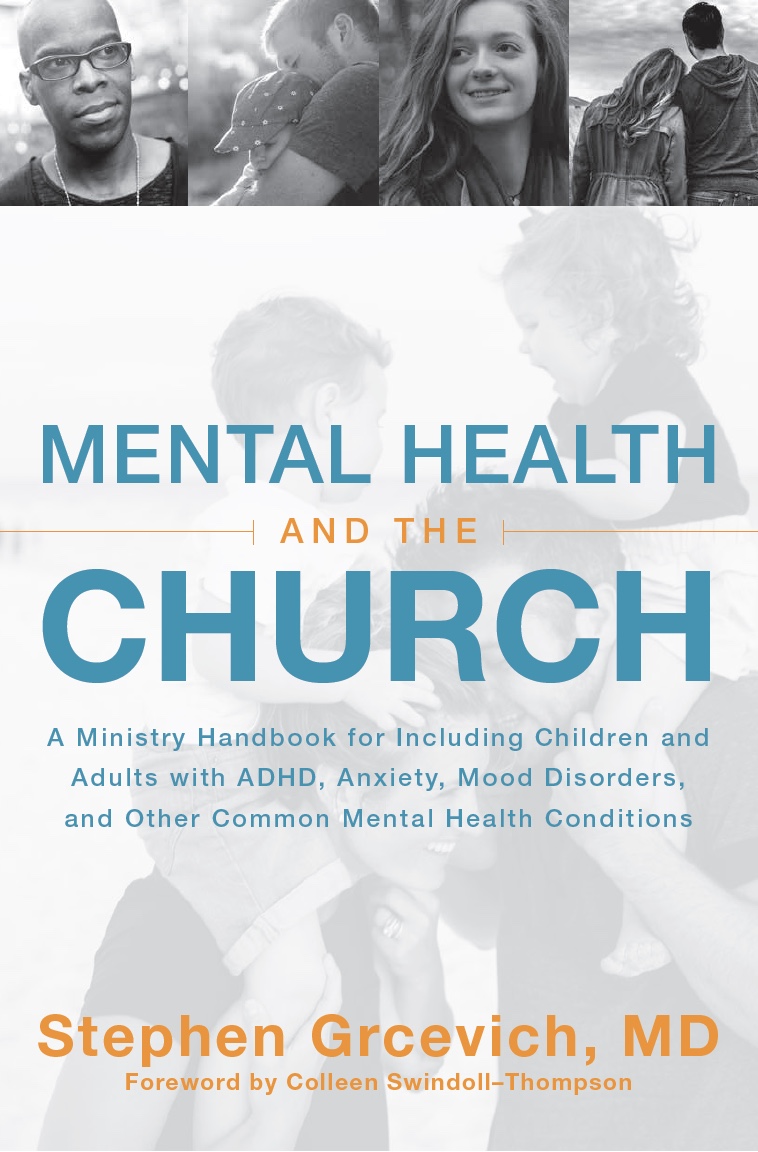 What do you think the most common cause of premature death is among adults of typical or high intelligence with autism spectrum disorders? It’s suicide.
What do you think the most common cause of premature death is among adults of typical or high intelligence with autism spectrum disorders? It’s suicide.
A large study was recently published in the British Journal of Psychiatry that examined the risk of death among the 27,122 persons diagnosed with autism spectrum disorders in Sweden when compared to age-matched controls. One significant finding from the study is that on average, persons with autism die sixteen years sooner than would be anticipated. The finding we’ll examine more closely is that adults with autism and no intellectual disability are over nine times more likely to commit suicide when compared to their age-matched peers. Unlike the general population, in which men are significantly more likely to commit suicide than women, women with autism were at higher risk of suicide in this study than men.
Last month’s study isn’t the only signal that persons with autism are especially vulnerable to suicide.
- The report of the Independent Mental Health Taskforce to the British National Health Service identified persons as at higher risk of mental health problems.
- A study of 10-14 year-olds with autism reported that 70% of kids with autism also had at least one mental health disorder such as anxiety, ADHD or depression, and 41% had at least two comorbid mental health disorders. Of those with ADHD, 84% received a second comorbid diagnosis.
- Kids with autism were 28 times more likely to experience suicidal ideation than age-matched peers without autism in this study.
- In a study of 374 adults with Asperger’s Disorder, 66% of 367 respondents self-reported suicidal ideation, 127 (35%) of 365 respondents self-reported plans or attempts at suicide, and 116 (31%) of 368 respondents self-reported depression. Adults with Asperger’s syndrome were nearly ten times as likely to report lifetime experience of suicidal ideation than individuals from a general UK population sample, and more prone to suicidal ideation than people with one, two, or more medical illnesses, or people with psychotic illness.
Why might suicide represent such an enormous problem among high-functioning persons with autism spectrum disorders?
 They’re more likely to experience social isolation and lack social supports. In the fall of 2014, we shared this anonymous post from a college student describing her experience of trying to attend church as a person with autism. Imagine how the challenges she describes would impact her day to day life outside of church.
They’re more likely to experience social isolation and lack social supports. In the fall of 2014, we shared this anonymous post from a college student describing her experience of trying to attend church as a person with autism. Imagine how the challenges she describes would impact her day to day life outside of church.
High-functioning kids with autism are significantly more likely to become victims of bullying when compared to their peers with autism and intellectual disability. It’s become socially inappropriate to ridicule persons with an obvious disability…less so when the disability isn’t so obvious.
They’re more likely to experience difficulties with executive functioning that may translate into a greater risk of acting upon suicidal impulses, more difficulty employing effective problem-solving skills and more difficulty self-regulating emotions. Learn more here about the challenges persons face with executive functioning challenges.
Their propensity to become very fixated on specific thoughts or ideas may intensify suicidal thoughts, or result in more difficulty letting go of feelings of hopelessness when they occur.
What can individual Christians and the church as a whole do to be of help?
 Become advocates for better research into specific treatments for mental health conditions that commonly occur among persons with autism spectrum disorders. Persons with autism often have lower response rates and more adverse effects from treatments for common mental health conditions compared to the general population.
Become advocates for better research into specific treatments for mental health conditions that commonly occur among persons with autism spectrum disorders. Persons with autism often have lower response rates and more adverse effects from treatments for common mental health conditions compared to the general population.
Make our churches “bully-free” zones. In my experience working with kids and teens with autism spectrum disorders, there are no greater challenges in getting a kid with autism engaged at church than a personal experience of having been bullied by kids from church. Here’s a video from two of our former colleagues (Katie Wetherbee and Rebecca Hamilton) on strategies for preventing bullying at church…
Consider the challenges someone who struggles with social communication might face in seeking to become more engaged at your church. Here’s an earlier post in which we look at the challenges someone might facein attending church who has difficulty picking up on body language or the meaning behind the tone and inflection of speech.
Be intentional about making the environments in which we “do church” more “sensory-friendly” for all persons, including persons with autism spectrum disorders. We wrote a post last year in which we described a number of challenges persons with sensory processing differences (common among kids and adults with autism) encounter when they seek to attend church.
 Carlyle King (pictured at right) is a friend of our ministry who has written about some of the challenges he has faced finding acceptance in the church. Carlyle shared the best advice I’ve heard for churches looking to share Christ’s love with persons with autism…
Carlyle King (pictured at right) is a friend of our ministry who has written about some of the challenges he has faced finding acceptance in the church. Carlyle shared the best advice I’ve heard for churches looking to share Christ’s love with persons with autism…
“Reach out and reconnect with our missing parts. Help them find that place where they honor God by functioning as they were made. Recognize that, if they don’t seem to fit, you may be the part needing adjustment.”
Editor’s note: Here’s a great summary publication from Autistica on the urgency of addressing early death among persons with autism spectrum disorders as a public health concern.
***********************************************************************************************************
 Sandra Peoples from our Key Ministry team has a wonderful article in Christianity Today in honor of Autism Awareness Month in which she discusses the challenges her family faced when their son (James) was diagnosed with an autism spectrum disorder, how the church in which her husband served as senior pastor rallied around their family, and how the response of the church to families of kids with special needs is changing. Check out Sandra’s article, My Son’s Autism Changed Everything – Even the Church and share the link with your friends!
Sandra Peoples from our Key Ministry team has a wonderful article in Christianity Today in honor of Autism Awareness Month in which she discusses the challenges her family faced when their son (James) was diagnosed with an autism spectrum disorder, how the church in which her husband served as senior pastor rallied around their family, and how the response of the church to families of kids with special needs is changing. Check out Sandra’s article, My Son’s Autism Changed Everything – Even the Church and share the link with your friends!





Pingback: Austism Study and Suicide – could your teen be at risk? | Anchor Of Promise
Pingback: Channeling My Rage | Outside In Ministries
Churches could host secular activities for people with Asperger’s, ADHD, and anxiety, especially for teens and young adults. These people have a hard time participating or competing with their same-age peers in activities like clubs and sports. But if they go to activities specifically for people with “special needs” or autism they fit in there either because they’re not intellectually or physically disabled. There’s not many venues for people with some quirky behaviors and limited social skills to get together, be accepted, and have FUN. The only options are therapy groups.
LikeLike
Pingback: M is for Misunderstandings | Un-Boxed Brain
In my church as a child, they told me that I would go to Hell because I was badly behaved. I was taught that thinking and acting differently was wrong, and that analyzing and asking questions about religion was wrong. I still find it difficult to trust Christians (other than my parents) and I consider myself an atheist.
LikeLike
Ettina,
I’m so sorry that you were treated in the way you were by folks professing to be Christians. Jesus was very intentional in embracing those in the culture who were targets of scorn from the religious leaders of his day, and he welcomes all who ask questions from a sincere heart.
I had a great phone conversation last month with Lori Sealy – the woman who writes this blog. I’d encourage you to check it out…
http://lorisealy.blogspot.com/2015/05/a-scene-from-my-story-along-autistic.html
LikeLike
I am so sorry, I felt the same way growing up. I felt since there was no way to be good enough, why even bother. Thankfully in my 20s I fell in love with Jesus, and discovered he never treated people that way. I pray you will too
LikeLike
I am an adult Christian on the autism spectrum. I love going to church but I tend to get lost in church, that is, I never really get to fellowship. Although I am a Christian, church just isn’t for me. CHURCH IS FOR THE NEUROTYPICAL!!!
LikeLike
There is a great need for supported housing for adults that are high functioning. If you find a community, they are in a different state, and you have to be a resident of that state to get in. A family cannot just quit their jobs and move, nor can the adult move by themselves. Try are literally stuck between a rock and a hard place. Meanwhile, you pray every day that your adult child doesn’t commit suicide, as there is no social life…and believe me, I have exhausted every avenue, with no success.
LikeLike
I’m autistic and I think about suicide quite a bit. Here is something I wrote that might shed some light on what goes through our heads during suicidal ideation. I’ve receive nothing but positive feedback from the autistic community.
I’d love to hear from you.
Thank you,
Arianne
LikeLike
I am an adult with Aspergers who felt awful in church because of the reaction of other people to me.
It made me feel worse rather than better and felt that how could these people be christians when they treated me so badly and excluded me so muc
LikeLike
I’ve been looking up research about suicide and executive dysfunction, and it exasperates me how much people get it wrong. Yes, Autistic adults struggle with social issues, but executive dysfunction is a huge mental health risk in adults because if you have no significant measurable mental impairment people expect you to maintain the same lifestyle and pace as people without executive dysfunction. The effort of attempting to live a “normal” life including juggling a huge number of tasks and expectations of other people when you struggle just to keep track of time is pure Hell. All around you are little sensory barbs and social upsets and people who think you’re just not trying hard enough because you don’t look different from anyone else. And you break because it’s as clear now as it was in school that no matter how hard it is just to do basic tasks in a day, people will expect more, and no matter how much you do, they’ll expect more, and when you do manage a task they ask of you they decide you’re not struggling because you proved you could do it. How can anyone be surprised at a higher suicide rate in people who spend their whole lives carrying a million little things bare-handed without help while others around them have carts and bags and look over to scold them for being so lazy?
LikeLike
When I was a child my Parents, wanted me to become Catholic, I have Dyslexia, and two other disabilities which are hidden.
I had trouble remembering the Catacism ( a book you need to know before making my first communion) can remember being bullied physically and mentally by a Nun,
I turned my back o n following a faith that does that.
But I do believe in god.
LikeLike
I have aspergers. As an adult i have been accused of things i haven’t done.
Singled out for a chewing out. I just don’t belong anywere either no one speaks to me i sit alone. Or i get acused. I’m 60 year old now
And can’t stand the loneliness any more
I will just skowly fade away. No would know im gone no family friends why be here
LikeLike